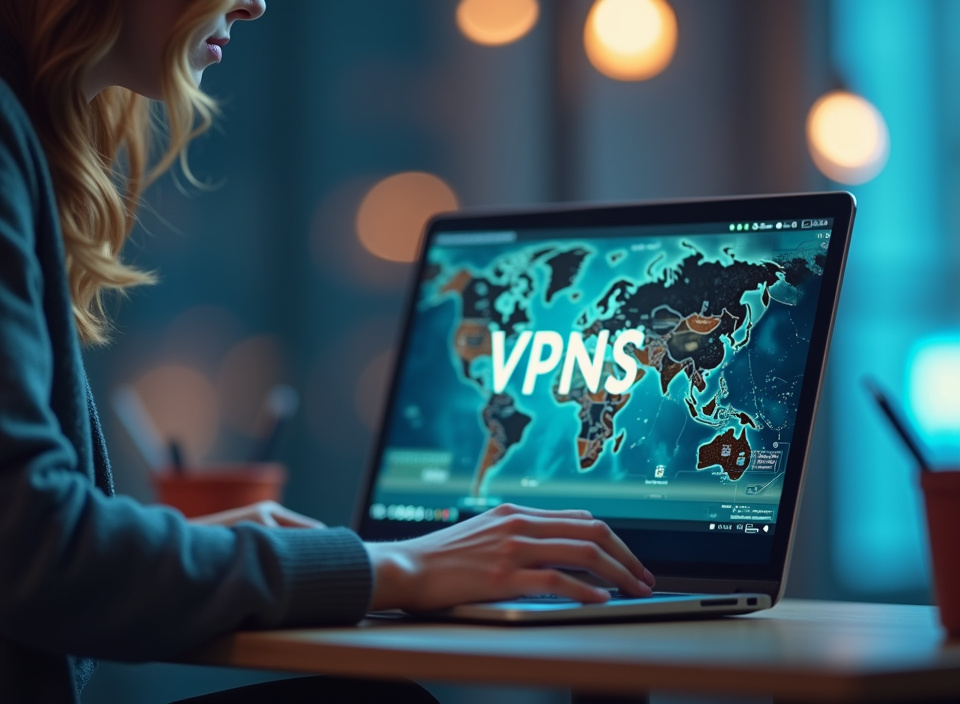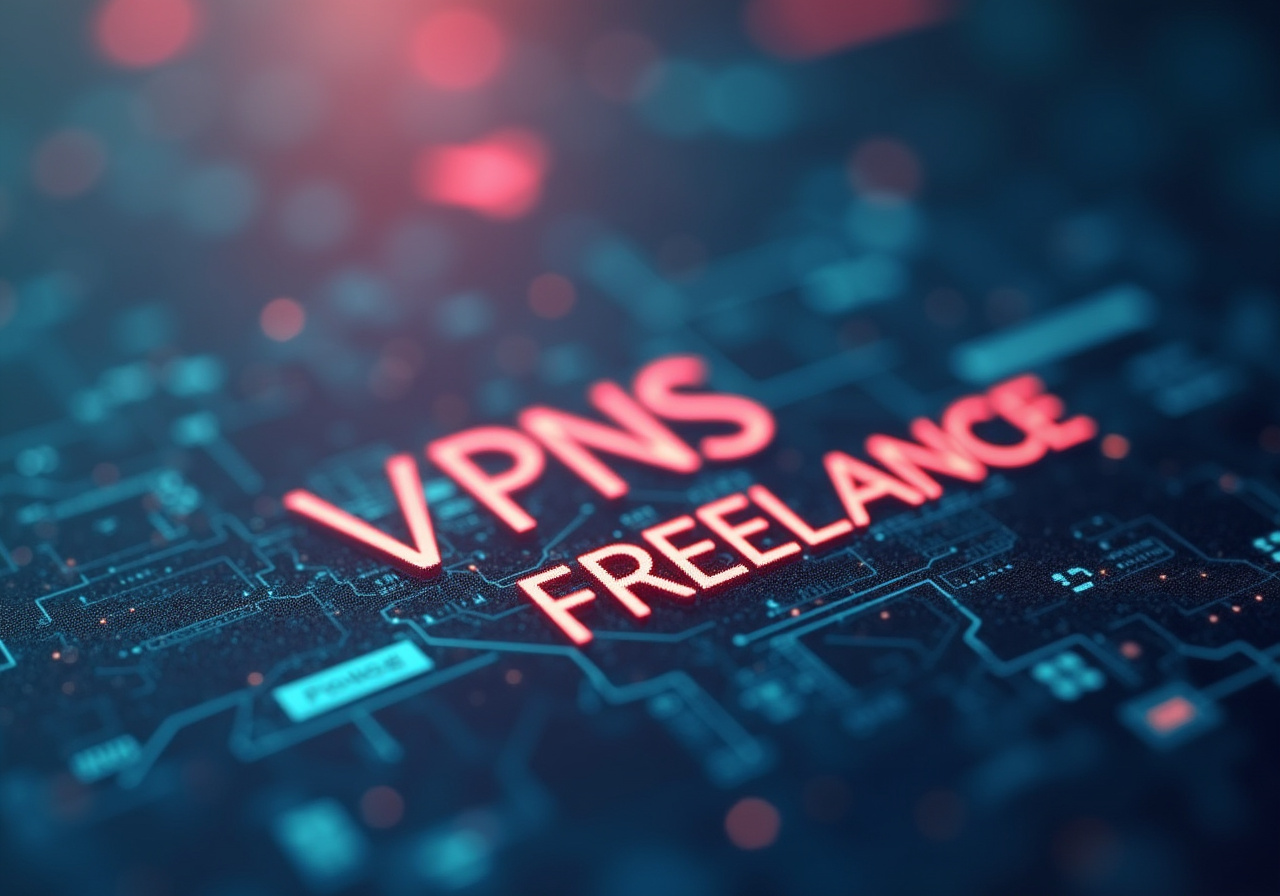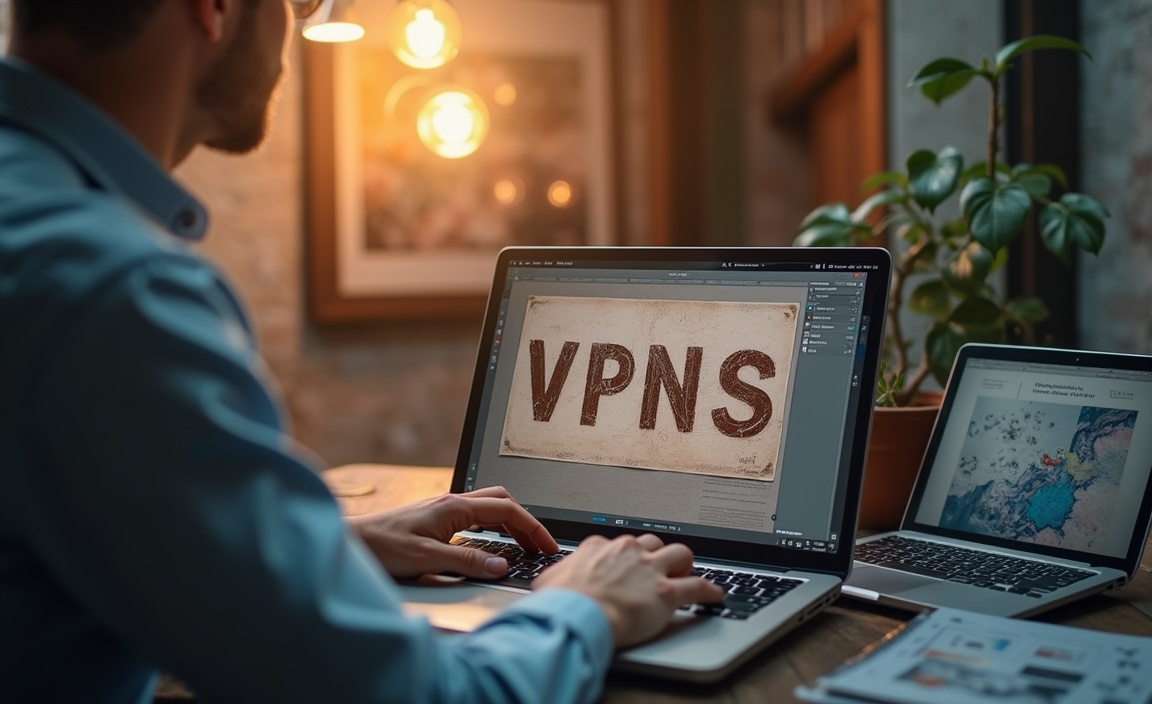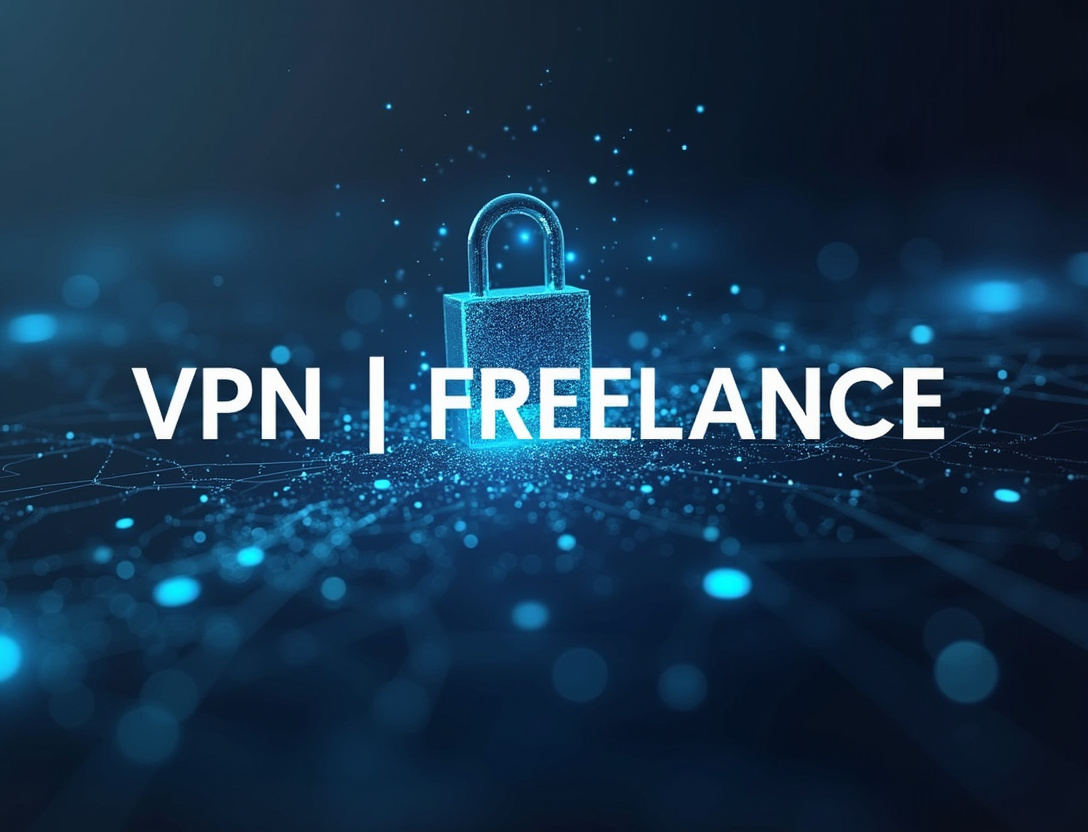VPNs for Freelance Coders: Protecting Project Assets
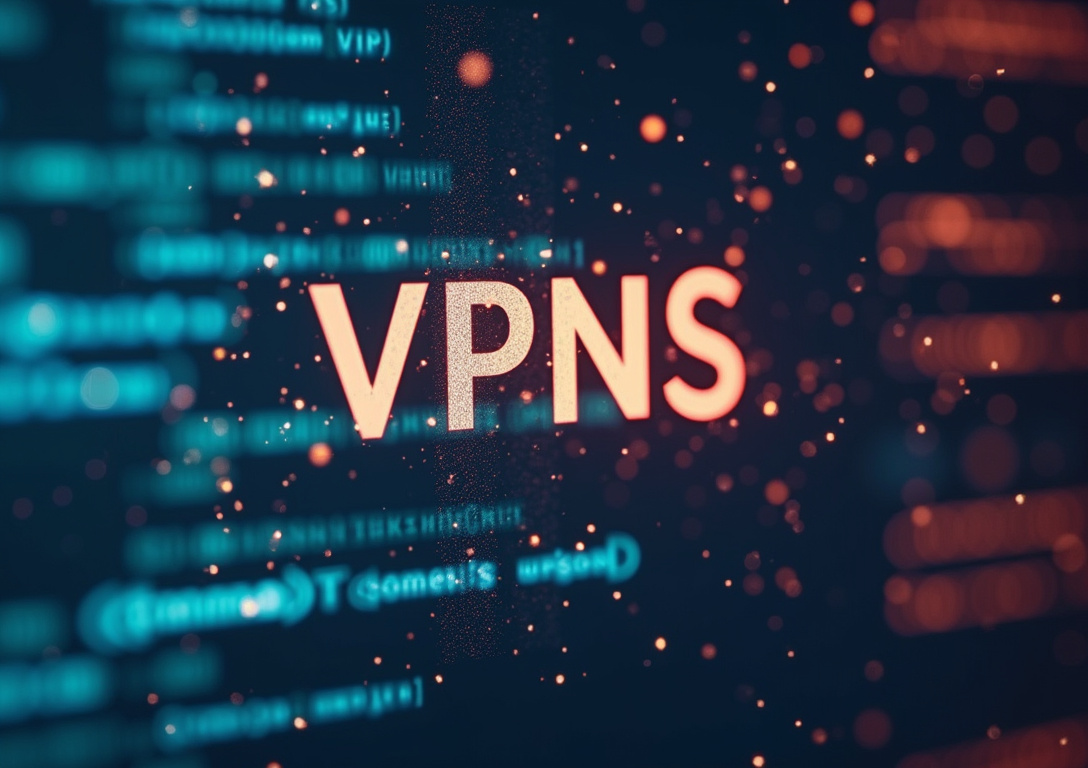
Table of Contents
- Safeguarding Code: Why Freelance Coders Need VPNs
- Fortifying Your Digital Workspace: Essential Security Measures
- Choosing the Right VPN: Key Features and Considerations
- Securing Client Data and Communications: Maintaining Confidentiality
- Optimizing Workflow with a VPN: Enhancing Security and Privacy
Safeguarding Code: Why Freelance Coders Need VPNs
Freelance coders operate in a dynamic environment, where innovation meets vulnerability. Unlike their counterparts in traditional corporate settings, freelancers often juggle projects from various locations, utilizing a mix of public Wi-Fi networks and personal devices. This inherent flexibility, while offering unparalleled freedom, also presents significant challenges to project asset security, client confidentiality, and the integrity of their data.
Here, a Virtual Private Network (VPN) transcends its role as a mere convenience, evolving into an indispensable security tool, providing a secure conduit for data transmission and bolstering overall cybersecurity. This article delves into the critical importance of VPNs for freelance coders, exploring how they can effectively safeguard sensitive project assets and maintain the trust of their clients. The modern freelance coding landscape demands a comprehensive understanding of VPNs and their capabilities.
As projects grow in complexity and the threat of data breaches looms large, the right VPN and its correct implementation become non-negotiable for maintaining professional integrity and protecting valuable work. From the initial client meeting where confidential project details are shared, to the final code commits and deployment, a VPN acts as a constant guardian, ensuring that every interaction and every precious line of code is shielded from prying eyes, preventing financial loses from possible espionage or code theft. Moreover, the rising tide of data privacy regulations underscores the ethical and legal imperative for freelance coders to embrace VPNs as a fundamental part of their security strategy.
Neglecting this responsibility can expose both the coder and their clients to potentially devastating legal and financial consequences, including hefty fines and irreparable reputational damage. Therefore, understanding how a 'coder VPN' can be a critical measure to mitigate these risks is no longer optional; it’s a cornerstone of responsible and forward-thinking freelance practice. The serenity and focus gained from knowing your work and client data are protected are invaluable, allowing you to concentrate on crafting exceptional code without the constant distraction of security concerns.
In essence, a VPN allows freelance coders to establish a virtual, secure office, regardless of their physical location. Replicating the same level of security expected in a traditional corporate environment, a VPN ensures that data remains protected across different geographical locations and unsecured networks. Investing in a VPN is thus a strategic move in safeguarding your professional credibility and ensuring the long-term viability of your freelance coding career.
It powerfully demonstrates your commitment to both 'project asset security' and maintaining 'client confidentiality', positioning you as a reliable and trustworthy partner in the digital era. Understanding the nuances of encryption protocols, varying server locations, and logging policies empowers you to make informed decisions when selecting the ideal 'VPN for freelancers' tailored to your unique needs and the specific requirements of each individual coding project. Prioritizing security is more than just protecting data; it’s about nurturing trust, solidifying relationships, and setting the stage for future success in the fiercely competitive freelance coding market.
With the cyber threat landscape continually evolving, constant vigilance and adaptation are essential for maintaining a robust and effective security posture. A VPN, when correctly chosen and implemented, forms a vital component of this defense, providing a foundational layer of protection against a wide array of potential threats. It enables you to confidently navigate the complexities of freelance coding, knowing that your project assets and client relationships are shielded from the ever-present risks of the digital world.
Fortifying Your Digital Workspace: Essential Security Measures
The fundamental strength of a VPN lies in its ability to create an encrypted tunnel connecting a coder's device to a VPN server. All data transmitted through this tunnel is rigorously scrambled, rendering it unreadable to unauthorized parties. This is particularly critical when utilizing public Wi-Fi networks, notoriously susceptible to eavesdropping and man-in-the-middle attacks.
Without the security afforded by a VPN, sensitive information such as login credentials for version control systems, API keys granting access to critical services, proprietary and often complex code, and confidential client communications are vulnerable to interception by malicious actors. By implementing robust encryption, a 'coder VPN' ensures that even in the event of a successful interception, the attacker will be unable to decipher and exploit the data. This robust encryption significantly reinforces 'data integrity' and substantially mitigates the potential for damaging data breaches.
Beyond the all-important encryption, VPNs enhance security by masking the user’s IP address, effectively anonymizing their online activity. This process is important for a number of reasons. Firstly, it thwarts attempts by websites, tracking services, and unscrupulous online entities to monitor the coder’s location and browsing patterns, hindering the creation of detailed user profiles.
Secondly, it provides a bulwark against targeted attacks specifically designed to exploit known IP addresses or vulnerabilities associated with a particular location. By strategically routing network traffic through a VPN server located in a different region, the coder can seamlessly conceal their true IP address, projecting the appearance of browsing from an entirely different geographic location. The selection of a suitable VPN protocol is also crucial for optimizing security.
Protocols such as OpenVPN, known for its open-source nature and strong security, IKEv2/IPsec, offering stability and speed, and WireGuard, a relatively new protocol designed for performance and efficiency, are generally regarded as the most secure alternatives, offering robust encryption algorithms and rigorous authentication methods. Antiquated protocols like PPTP, while perhaps historically relevant, are demonstrably insecure with known exploitable vulnerabilities and should be scrupulously avoided. When evaluating a 'VPN for freelancers', it's vital to rigorously assess the supported protocols, ensuring that the chosen VPN leverages the most current and robust secure options available.
Furthermore, the strategic geographical placement of the VPN server plays a significant role in both performance and security. Selecting a server that is geographically proximal to the coder can minimize latency, leading to improved connection speeds and a smoother user experience. However, it may also be advantageous to select a server located in a jurisdiction with more stringent data privacy laws, providing an additional layer of protection for 'client confidentiality' and ensuring compliance with relevant legal frameworks.
A high-quality 'VPN for freelancers' will provide a wide selection of server locations, allowing coders to tailor their connection to their specific requirements and navigate potentially complex compliance obligations. Finally, it is imperative to meticulously review the VPN provider’s logging policy. Some VPN providers maintain logs of user activity, which could potentially be accessed by law enforcement or other third parties via legal subpoena.
To guarantee maximum privacy and anonymity, it’s crucial to select a VPN provider that implements a stringent no-logs policy. Such a policy ensures that the provider neither tracks nor stores any information about the user’s online activities, adding an additional and essential layer of protection to 'project asset security'. This commitment to user privacy is a hallmark of a trustworthy and reputable 'VPN for freelancers'.
It is an important distinction to make when shopping for a proper VPN implementation.
Choosing the Right VPN: Key Features and Considerations
Beyond the bedrock security benefits, a VPN furnishes freelance coders with a constellation of practical advantages, streamlining workflow and enhancing productivity. One significant benefit is the ability to circumvent geographically restricted content and resources. Frequently, clients and projects demand access to specific online services, libraries, or APIs that are exclusively available in certain geographic regions.
A 'coder VPN' empowers freelancers to bypass these limitations seamlessly by connecting to a server within the requisite location, effectively spoofing their apparent location and gaining unfettered access to the necessary tools and resources. This is a particularly valuable asset for coders engaged in international projects or those collaborating with clients dispersed across different countries. By impersonating to be situated where the resources are available, even though the user is not, can offer increased ease of development and increase in productivity.
Another critical application emerges in secure remote access to vital development servers and client infrastructure. Typically, freelance coders require secure access to remote servers to deploy code updates, conduct rigorous application testing, and effectively troubleshoot arising issues. Connecting to these servers over a public, inherently insecure network without the protection of a VPN exposes sensitive data to a considerable range of potential dangers and threats.
Conversely, a VPN establishes a secure and meticulously encrypted communication channel, assuring that all data transmitted between the coder's machine and the remotely located server is stringently protected from unwanted surveillance and tampering. This heightened security is paramount for upholding 'data integrity,' preventing unauthorized access to mission-critical systems, and preventing accidental or intentional data overwrites. Furthermore, a high-performance 'VPN for freelancers' contributes to a robust defense against Distributed Denial-of-Service (DDoS) attacks.
These attacks are designed to overwhelm a server with a deluge of malicious traffic, rendering it effectively inaccessible to legitimate users and disrupting crucial services. Freelance coders who independently host their own development servers or websites are particularly susceptible to the debilitating effects of DDoS attacks. While a VPN cannot entirely eliminate the threat of a DDoS attack, it can significantly mitigate its impact by masking the coder's true IP address and distributing traffic through a network of servers, making it considerably more difficult for attackers to target a single location.
This is also essential for preserving not only the speed parameters of the website, but also protecting the business’s brand image. Another benefit of using a VPN includes secure file sharing. When dealing with sensitive project files and deliverables, a 'VPN for freelancers' ensures that the transfer of this valuable information is protected.
By directing the file sharing through an encrypted and secure channel, the possibility of interception is reduced to the minimum possible which provides peace of mind to all the parties involved. The VPN helps coders to achieve the necessary compliance regarding confidentiality policies and safety measures when sending confidential and high-intellectual-property files. Additionally, some VPN service providers offer specialized and enhanced features for added security and ease of use.
These may include features such as a kill switch which automatically terminates the internet connection when the VPN connection drops, thus preventing any unencrypted data from being transmitted.
Securing Client Data and Communications: Maintaining Confidentiality
Selecting the optimal 'VPN for freelancers' involves a multifaceted evaluation process considering specific needs, security priorities, and budget constraints. Not all VPN services are created equal; therefore, a discerning approach is essential to ensure the chosen solution provides the necessary protection and functionality. One of the first key considerations during the selection process should be the core security features offered by the VPN provider.
This includes a meticulous examination of the encryption protocols used, ensuring they adhere to industry best practices with robust algorithms like AES-256. Furthermore, the VPN should support a range of secure protocols, such as OpenVPN, IKEv2/IPsec, and WireGuard, offering flexibility and compatibility with different devices and operating systems. A reliable kill switch is also paramount, preventing accidental data leaks in the event of a VPN connection drop.
Beyond core security, a thorough assessment of the VPN provider's privacy policy is crucial. A strict no-logs policy is non-negotiable, guaranteeing that the provider does not collect or store any information about the user's online activity, including browsing history, connection timestamps, and IP addresses. Transparency in the provider's data handling practices is also essential.
The provider should clearly outline what data, if any, is collected and how it is used. Independent audits of the provider's security and privacy practices can provide further assurance of their commitment to protecting user data. The jurisdiction in which the VPN provider is based is also a significant factor.
Choosing a provider based in a country with strong data privacy laws and no mandatory data retention requirements can offer greater protection against government surveillance and data requests. Performance is a critical consideration, particularly for freelance coders who rely on fast and stable internet connections. A 'VPN for freelancers' should offer a wide range of server locations globally, allowing users to connect to servers that are geographically close to their location or to the resources they need to access.
Server load and bandwidth capacity also affect performance. Providers that invest in high-bandwidth servers and actively manage server load can ensure optimal connection speeds, even during peak usage times. Many VPN providers offer speed test tools or allow users to test server performance before subscribing.
Ease of use is also an important factor, especially for coders who may not be technically savvy. The VPN client should be intuitive and easy to navigate, with clear instructions and helpful support resources. Cross-platform compatibility is essential for coders who use multiple devices and operating systems.
The 'VPN for freelancers' should offer clients for Windows, macOS, Linux, iOS, and Android, ensuring seamless protection across all devices. Some providers also offer browser extensions for added convenience. Considering any specific needs of the work to be performed helps choosing the best option with the best server locations where the work resources can be accessed.
Finally, the cost of the VPN service should be weighed against its features and benefits. While free VPNs are available, they often come with significant limitations, such as limited bandwidth, fewer server locations, and intrusive advertising. Premium 'VPN for freelancers' offer better security, performance, and features, but they typically require a subscription fee.
Comparing the pricing plans of different providers and considering any long-term discounts can help find the best value for money.
Optimizing Workflow with a VPN: Enhancing Security and Privacy
Once a 'VPN for freelancers' is selected, proper implementation and ongoing maintenance are crucial to maximize its effectiveness and ensure continuous protection. The initial setup process typically involves downloading and installing the VPN client on all devices used for coding work. It’s essential to download the client directly from the VPN provider's official website to avoid potential malware or phishing scams.
During installation, carefully review the client's permissions and settings, ensuring that only necessary access is granted. After installation, configure the VPN client to automatically connect whenever the device starts or joins a new network. This helps ensure that all internet traffic is always routed through the VPN tunnel, providing continuous protection.
Regularly updating the VPN client is essential to patch security vulnerabilities and benefit from performance improvements. Most VPN clients offer automatic update functionality, which should be enabled to ensure that the software is always up to date. It’s also a good practice to periodically review the VPN client's settings and configuration to ensure they are still aligned with your security needs.
This includes verifying that the kill switch is enabled, the correct encryption protocol is selected, and the server location is optimized for performance and security. Actively monitoring the performance of the VPN connection is vital to identify any potential issues. If the connection is consistently slow or unstable, try connecting to a different server location or contacting the VPN provider's support team for assistance.
Educating yourself about online security threats and best practices helps you maintain a proactive security posture and minimize your risk of falling victim to cyberattacks. This includes staying informed about the latest phishing scams, malware threats, and social engineering tactics. It’s also important to practice safe browsing habits, such as avoiding suspicious websites, using strong and unique passwords, and enabling two-factor authentication whenever possible.
In addition to using a VPN, consider implementing other security measures like a firewall, antivirus software, and a password manager. Establishing clear guidelines for handling sensitive project data and client communications is also crucial. This includes defining secure methods for transferring files, storing data, and communicating with clients.
Encourage the use of encrypted messaging apps and discourage the sharing of sensitive information over unsecured channels. It's advisable to regularly back up project files and store them in a secure location. This can help prevent data loss in the event of a hardware failure, cyberattack, or accidental deletion.
Consider using cloud-based backup services that offer encryption and version control. Finally, continuously reviewing the effectiveness of your security measures helps you adapt to evolving threats and maintain a robust security posture. This includes periodically assessing your VPN configuration, security software, and data handling practices.
Conduct regular risk assessments to identify potential vulnerabilities and prioritize security improvements. Staying informed about the latest security threats and best practices and adapting your security strategy accordingly will protect 'project asset security', 'client confidentiality', and 'data integrity' in the long run. By prioritizing security and continuously improving your security practices, you can protect yourself, your clients, and your business from the ever-growing threats of the digital world, allowing you to thrive as a freelance coder.
Stay Updated
Get the latest VPN news, tips, and exclusive deals to your inbox.

